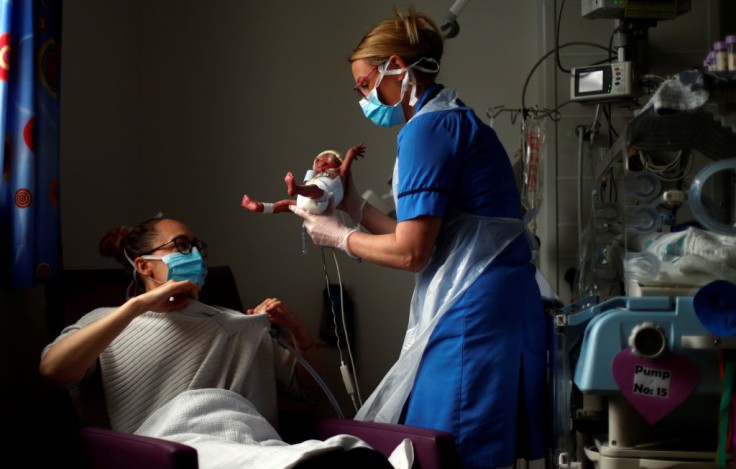
According to a new study, premature babies receiving medical care and undergoing procedures at the neonatal intensive care unit feel less pain when they hear their mom's voice.
Experts at the University of Geneva (UNIGE), the University of Valle d'Aosta, and the Parini Hospital in Italy have observed this phenomenon to highlight the significance of a mother's presence in healing premature babies. The scientists were curious to know if vocal contact impacted the infants' cerebral mechanisms, which could mean non-pharmacological ways to help these delicate humans while in pain.
As the moms spoke, the experts observed that the babies' oxytocin level also picked up, which means they can manage the pain better. The findings of the study have been published in Scientific Reports.
Monitoring the Babies
Researchers closely monitored 20 babies at the Italian hospital, where the moms were also asked to join the medical workers during a routine blood test. Dr. Manuela Filippa, one of the lead study authors, said that they asked the moms because it is typically harder for the fathers to be the primary carer in the baby's first few days of life. However, Filippa said they are running a separate study on fathers' voices and their impact on the babies.
Throughout the three-day observation, the babies were first injected without their mothers by their side. The second and third days had the mothers speaking and singing to their babies for five minutes before the blood test.
The experts used a Preterm Infant Pain Profile (PIPP) to measure the pain reduction in the babies, which also tracked facial expressions, heartbeat, and oxygenation. The PIPP result was 4.5 without the mother and dropped to 3 when the mother spoke to their babies.
However, the PIPP result when the mother sang was at 3.8. The experts said that the vocal intonation of the mother likely changed as the melodic structure of a song constrained her voice.
Oxytocin Increase with Mom's Voice
The experts also checked the oxytocin levels of the babies using a saliva sample. They found an increase from 0.8 picograms per milliliter to 1.4 per milliliter when the babies heard their moms.
According to the experts, this has been the most significant result as oxytocin is the love hormone that enhances relationships. It is one of three happy hormones, alongside dopamine and serotonin. In other studies, oxytocin has been shown to trigger relaxation and the overall stability of a person's psyche. This hormone is also produced and released during breastfeeding in mothers and babies, creating a stronger bond.
Premature babies are usually separated from their parents upon birth as they require constant medical intervention, which may affect their development or progress.
"We demonstrate here the importance of bringing parents and child together, especially in the delicate context of intensive care," Filippa said, adding that moms play such a protective role for infants from their birth.
Related Article: Miracle Baby Born at 21 Weeks Celebrates First Birthday